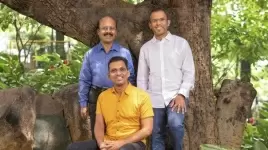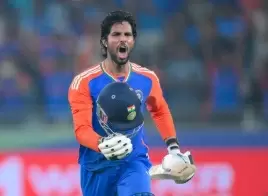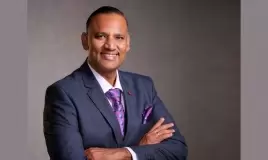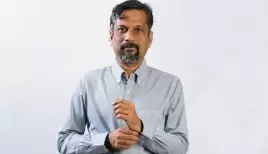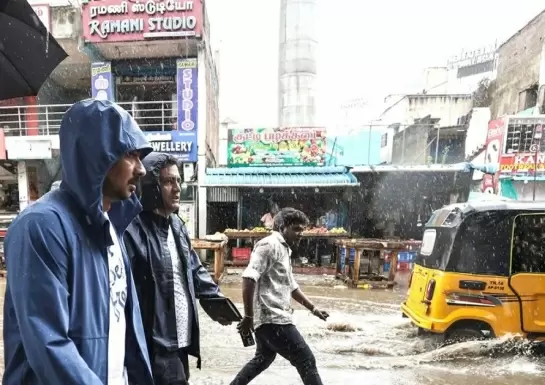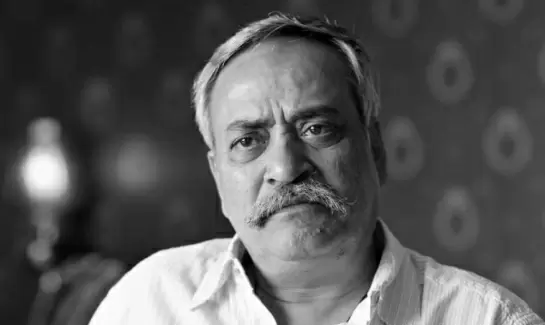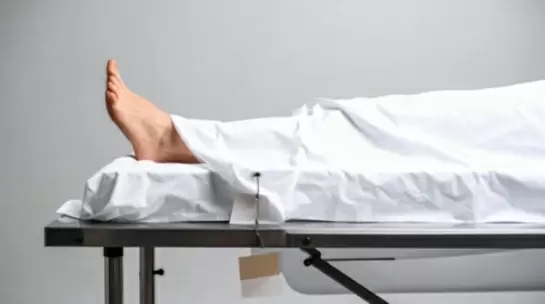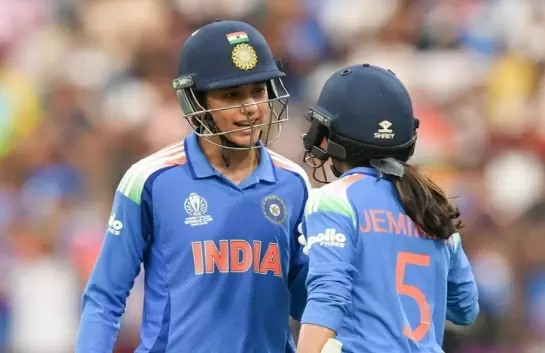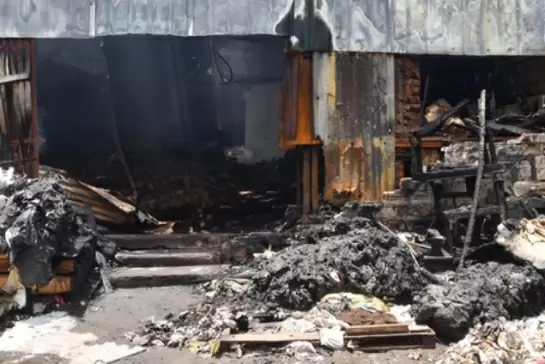‘We want an internationally backed Transitional Administration’

12-July-2013
Vol 4 | Issue 28
Gajendrakumar Ponnambalam is a third generation Tamil politician from Sri Lanka. He hails from a family of well known lawyers. His father Kumar Ponnambalam, who championed the cause of Tamils in a racist milieu, was gunned down in Colombo in 2000 by unidentified assailants.
A former Member of Sri Lankan Parliament (2001- 2010) and leader of a political party, the Tamil National Peoples' Front (TNPF), Gajen as he is fondly called, is an articulate, out spoken young politician. He is a qualified lawyer, educated in England.
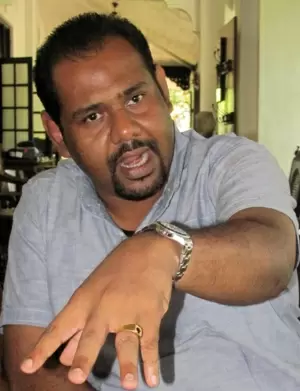 |
|
Gajen's demand for an internationally backed Transitional Administration in Tamil areas of Sri Lanka has earned him many enemies
|
Gajen is a marked man now. His call for an internationally backed Transitional Administration in Tamil areas of Sri Lanka, and his fearless crusade for Tamil rights, often taking contrarian positions to that of President Mahinda Rajapaksa, has earned him many enemies.
In May 2013, four unidentified masked men surveyed his house. The obvious message to him is, “back off, or else…”
But the 39-year-old Gajen, is not the one to heed to such threats. In an exclusive interview to The Weekend Leader, he told Paul Newman, “I work on the basis that I rather be killed than accept the genocide that is being committed on my people.”
Excerpts from the interview:
How do you respond to accusations that you are continuing with dynastic politics without a real grasp of ground level Tamil politics?
I don’t see coming from a “dynasty” of Tamil politicians as an issue, as long as I have the capacity to serve my people in my own right. One’s own personal achievements and failures are what I believe one must be judged by, and not by the family one belongs to.
But quite honestly, I find the suggestion that I have not grasped ground level Tamil politics a little surprising. I say this because I happen to be the only Tamil politician who was born and bred in an elite Colombo background, but who chose to eschew that same Colombo elite thinking and move to Jaffna and settle down there.
In fact, most Tamil elites accuse my politics of compromising their interests and only addressing the interests of the ground level Tamil society.
Do you believe what happened during Eelam War IV was genocide? Is there any hope of international investigations?
I have no doubt whatsoever that what happened, not only during Eelam War IV, but ever since the British departed from the island of Sri Lanka, is an ongoing systematic genocide. The Sri Lankan state is systematically dismantling the existence of the Tamils as a distinct nation in Sri Lanka.
What I mean by nation is Tamils being a people who have a distinct language, distinct territory, a distinct culture, and a self-sustaining economy of our own. It is this nationhood that the Sinhala State wishes to see the end of, as Tamil nationhood is the biggest threat to Sinhala Buddhist nationalism that wishes to turn the island into a Sinhala Buddhist Ethnocracy.
So in this genocide, the loss of Tamil lives is just one aspect of the picture. Every one of the pillars that qualify us for nationhood is being systematically destroyed. It is the truth. And this is what the Tamils need to be safeguarded from. This reality is what the conflict is all about.
War crimes and crimes against humanity were also committed. What I oppose is merely calling for the investigation of war crimes and crimes against humanity, and leaving out the crime of genocide. Investigate all three crimes is what we are saying.
The international community is only interested in the last stages of the war. This is unacceptable. The period that needs to be investigated is the last 65 years – that is, the period ever since the British left the island. That is when the Genocide against the Tamils commenced.
As to whether there ever will be international investigations, well as you know, it all depends on geopolitics and how the US (and the western countries) and India view Sri Lanka’s shift towards China.
Even if you look at the way the West and India frame the issue of accountability, they are merely trying to use the issue to bring about a regime change and not genuine accountability. If genuine accountability is what the West and India want, then they should have no problem in investigating charges of genocide, and also the last 65 years of Sinhala rule over the Tamil nation.
There is a danger that international investigations will only become a reality if the West and India believe that the regime change that they want to see in Sri Lanka will not take place!
As for the Tamils, we must not merely let geopolitics decide our fate. It is the duty of every Tamil to mobilize our people in a democratic way, to pressure the international community to act. I believe, if the Tamils here, the Tamils in Tamil Nadu and the Diaspora mobilize in a coordinated way, the international community, and particularly India and the West will have to act.
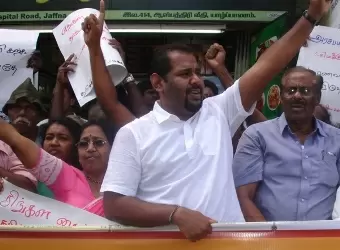 |
|
Gajen rejects the charge that he has not grasped grassroots Tamil politics
|
You were the first Tamil leader to demand internationally supervised transitional administration of the Tamil homeland in the North and East of Sri Lanka at the UNHRC in Geneva. Can you elaborate how it would function and fulfill the aspirations of the Tamils?
We want an internationally backed Transitional Administration for three main reasons. Firstly, we need to secure the Tamil Nation from the ongoing Genocide. This can only happen if we are taken out of the hegemonic grip of the Sinhala State.
The second reason is that if we truly want an accountability mechanism to be successful, then the Tamil people must feel safe in being able to come out and give evidence.
This can only happen if the Tamil homeland is taken out of the strangulating grip of the Sinhala State, and a protective mechanism is put in place. We see the Transitional Administration as such a protective mechanism.
And thirdly, a meaningful reconstruction of the destroyed livelihoods of our people can only happen through an administration that is accountable to the Tamil people.
In other words, the Administration we envisage is not merely a protection mechanism, but one that would have sufficient powers to handle the immediate resettlement, and the rebuilding of livelihoods and development needs of our people.
It is important to state that this Transitional Administration would exist only till such time an acceptable political solution is found to the Tamil national question. So it is not a substitute for a negotiated solution. It is something that must be set up in the interim period.
It is a common perception that TNPF prefers to work with civil society than the government of Sri Lanka. If that is the case how would you negotiate for a settlement with the government?
We are not saying that the Tamils should not negotiate with the government of Sri Lanka. What we are saying is that when we do sit down to negotiate, the government of Sri Lanka must first accept certain fundamentals.
They must accept that we are a distinct Nation with our own sovereignty and that we are a people with the right to self-determination. It is on this basis that negotiations can take place to work out the modalities on how the Tamil and Sinhala Nations can coexist in one country.
There have been severe threats to your life. Recently there were reports of four unidentified men visiting your house. The TID (Terrorism Investigation Department) had summoned you to its headquarters. How do you cope with all this given the fact that your own father was gunned down?
I work on the basis that I rather be killed than accept the genocide that is being committed on my people, as a way of life. I am doing nothing wrong!
I am not doing anything that even violates the most draconian laws of the Sinhala State, like the Prevention of Terrorism Act, or the notorious 6th Amendment to the Sri Lankan constitution that prohibits the espousing of a separate state. All I am agitating for is a re-envisioning of the State. That is my fundamental right and democratic right!
What is your reaction to the Tamil Eelam Freedom Charter declared by TGTE (Transnational Government of Tamil Eelam) in May 2013?
The 6th Amendment to the Sri Lankan constitution prohibits me to say or do anything that might be construed as espousing the creating of a separate state. Therefore I cannot comment on this matter.
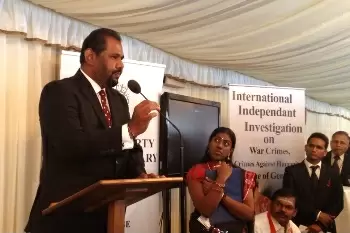 |
|
The Tamil Diaspora are an asset in the struggle for rights, says the Jaffna based politician
|
How do you view the resurgence of the Tamil Diaspora world over?
We believe it is inevitable that the Eelam Tamil Diaspora would mobilize again. Each and every member of the Diaspora is directly in touch with their family members back in the homeland.
They know about the genocide that their brethren are facing. They also know of the unprecedented oppression that the Tamils are facing here. So it is only natural that the Diaspora will take up the cause of the Tamils in the homeland, when the Tamils here have been made voiceless. I fully appreciate most of their efforts.
There are some groups though, unfortunately, that are behaving in a very naïve way. These groups refuse to see the geopolitics that is driving policy in the western countries that they live in, and as a result are formulating strategies that I believe are a waste of finances and effort. But these groups will realize soon why their efforts will not succeed.
Then of course there are some groups and individuals who are being promoted by some western governments to more or less lobby the Tamil Diaspora on their behalf. These groups function very similar to how India uses the Tamil National Alliance to do its bidding in Sri Lanka. Such groups will get discredited as time goes by.
But by and large, the Diaspora and their organizations are an asset to us.
What is your opinion on the students’ movement in Tamil Nadu in support of the Eelam struggle?
The students’ movement in Tamil Nadu is the very bright light that we see at the end of the tunnel. My firm view is that the students’ movement and their continued strategic mobilization are going to be the key for the future of the Eelam Tamils. (to be continued)
Dr. Paul Newman holds a Doctorate of Philosophy on ‘Internal Displacement and Human Rights situation in Northern Sri Lanka’ from Bangalore University. He was one of the four public speakers at the Permanent People’s Tribunal on War Crimes against Sri Lanka



